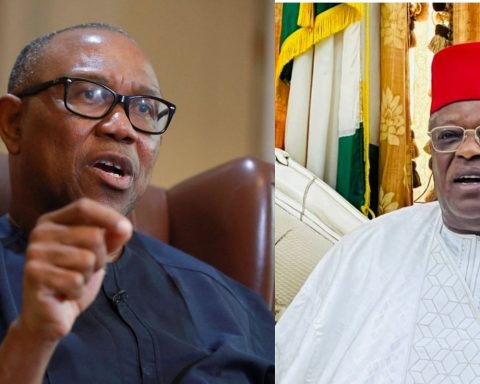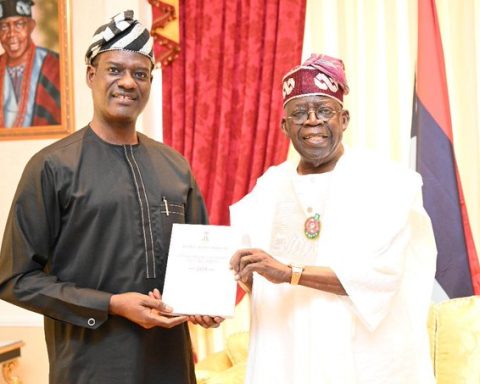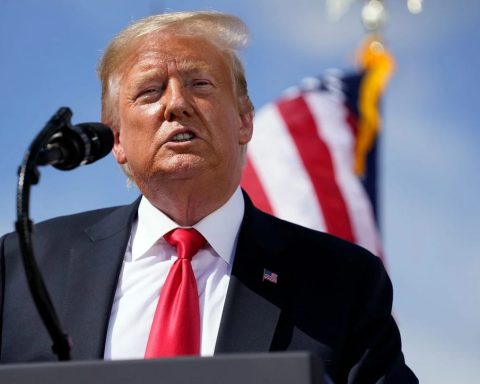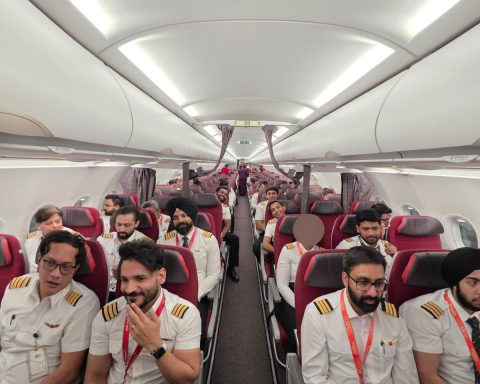The Nigerian government’s announcement of securing a $747 million syndicated loan to finance the construction of the Lagos-Calabar Coastal Road has sparked reactions from Nigerians about government priorities and the implications on the country’s growing debt.
The director of information and public relations at the Ministry of Finance, Mohammad Manga, who announced the development in a statement on Wednesday, 9 July, said the loan would be used to finance Phase 1 Section 1 of the project, stretching 47 kilometres from Victoria Island to Eleko Village in Lagos.
Join our WhatsApp ChannelAccording to Manga, Deutsche Bank is taking the lead in the syndicated loan. Other lenders in the syndicate include First Abu Dhabi Bank, African Export-Import Bank, ECOWAS Bank for Investment and Development, Nexent Bank N.V. (formerly Credit Europe Bank N.V.), and Zenith Bank.
The ministry further stated that the Islamic Corporation for the Insurance of Investment and Export Credit also provided partial political and commercial risk insurance.
The decision of the Federal Government to secure a $747 million syndicated loan to finance the Lagos-Calabar Coastal Highway has sparked mixed reactions, ranging from praise for infrastructure development to criticism over procurement controversies and economic priorities.
From the government side, Finance Minister Wale Edun and Minister of Works Engr. David Umahi, have described the transaction as one that reflects growing investor confidence in the country’s economic reforms and infrastructure plans.
“This deal reflects the success of our macroeconomic reforms and the return of international capital to support Nigeria’s development,” Edun stated.
“We are focused on financing infrastructure in ways that are sustainable, transparent, and catalytic—and this transaction is a model of that vision in action,” he added.
“This transaction is a vote of confidence in Nigeria’s economic reform agenda. The Lagos-Calabar Highway is a strategic national asset, and this financing sets a strong precedent for future public-private infrastructure partnerships,” Umahi stated.
However, criticisms have trailed the project and the latest borrowing plan to finance it.
Nigerians took to social media to question the decision of the Federal Government to borrow $747 million for just Phase 1 Section 1 of the project.
As of today, over 70% of Phase 1 Section 1 is already complete. The Lagos-Calabar Coastal Highway is being constructed using Continuously Reinforced Concrete Pavement (CRCP), a cutting-edge technique which experts say ensures: a minimum lifespan of 50 years, low maintenance costs, and high resistance to environmental and usage stress.
An X user, Hon. Ayodele MCLawal, queried why $747 million will be spent on only the Phase 1 Section 1 of the project the coastal road project.
He said: “What’s nation building without turning Nigeria into a premium debt subscription service? $747 million, just for Phase 1, Section 1? At this rate, by the time we get to Section 4, we’ll owe Deutsche Bank our passports, national anthem, and a few public holidays. Meanwhile, nothing says progress like borrowing billions to build roads we may never finish, while hospitals beg for electricity and students learn under leaking roofs.”
Another X user, Uche Bakaadi @Uchebakaad,i asked what the government has done with the money saved from fuel subsidy removal over the last two years.
“What infrastructure are savings from the subsidy being spent on? Fed Govt still taking Loan with interest being touted as a sign of investor confidence.”
READ ALSO: Tinubu Commissions Completed 30km Section Of Lagos-Calabar Coastal Highway, Hails Umahi, Contractors
“More and more loans. The Tinubu-led government has taken more loans than all Nigerian presidents combined. The presidency claimed that the proceeds of fuel subsidy removal are channeled to road infrastructure nationwide, yet they take loans on a weekly basis. Where are the roads?” Papa @Nnajiude asked.
Another X user, Olisaemeka, said the funds could have been deployed to fund the health system to boost healthcare in the country. He said: “1 MRI machine is 800million Naira. 39 billion Naira from that borrowed money will give us 46 MRI MACHINES. Split among the General Hospital across. Health is a luxury in Nigeria.”
“The intriguing thing about this is that the road is 70% completed. Section 1 was funded from the 2024 supplementary budget with over N1trn. Can someone explain to me what’s going on?” Ebi Bomodi @Bomodiebi stated.
However, another X user, DevRitual, hailed the move as a positive development, saying that if the fund is managed well, it would open up economic activities when the road is completed.
“That’s a positive development! Securing a $747 million loan for Phase 1 of the Lagos-Calabar Highway is a major step toward boosting infrastructure and regional connectivity. If well managed, this project could open up massive economic opportunities, create jobs, and ease transportation across the southern corridor of Nigeria.”











